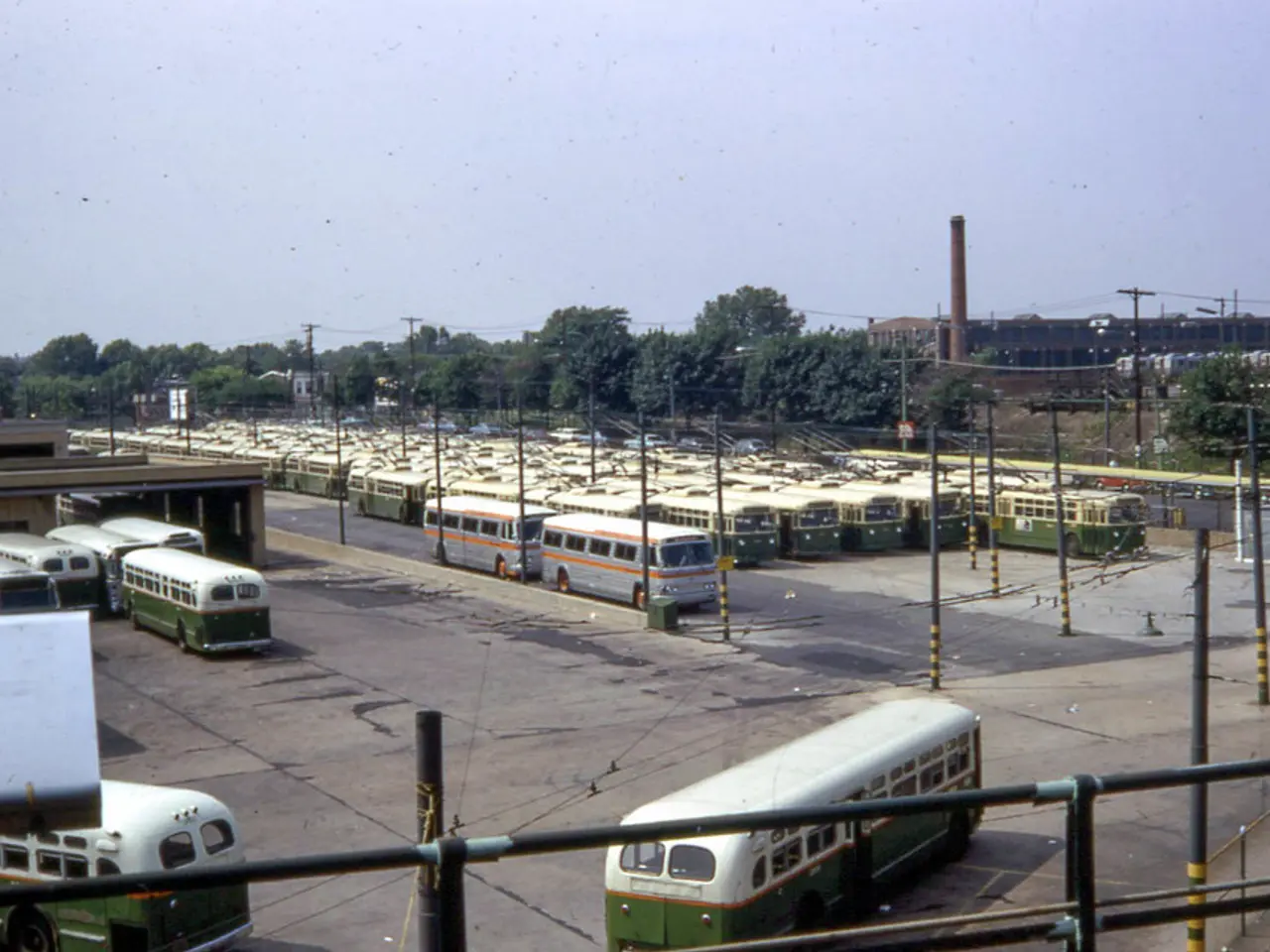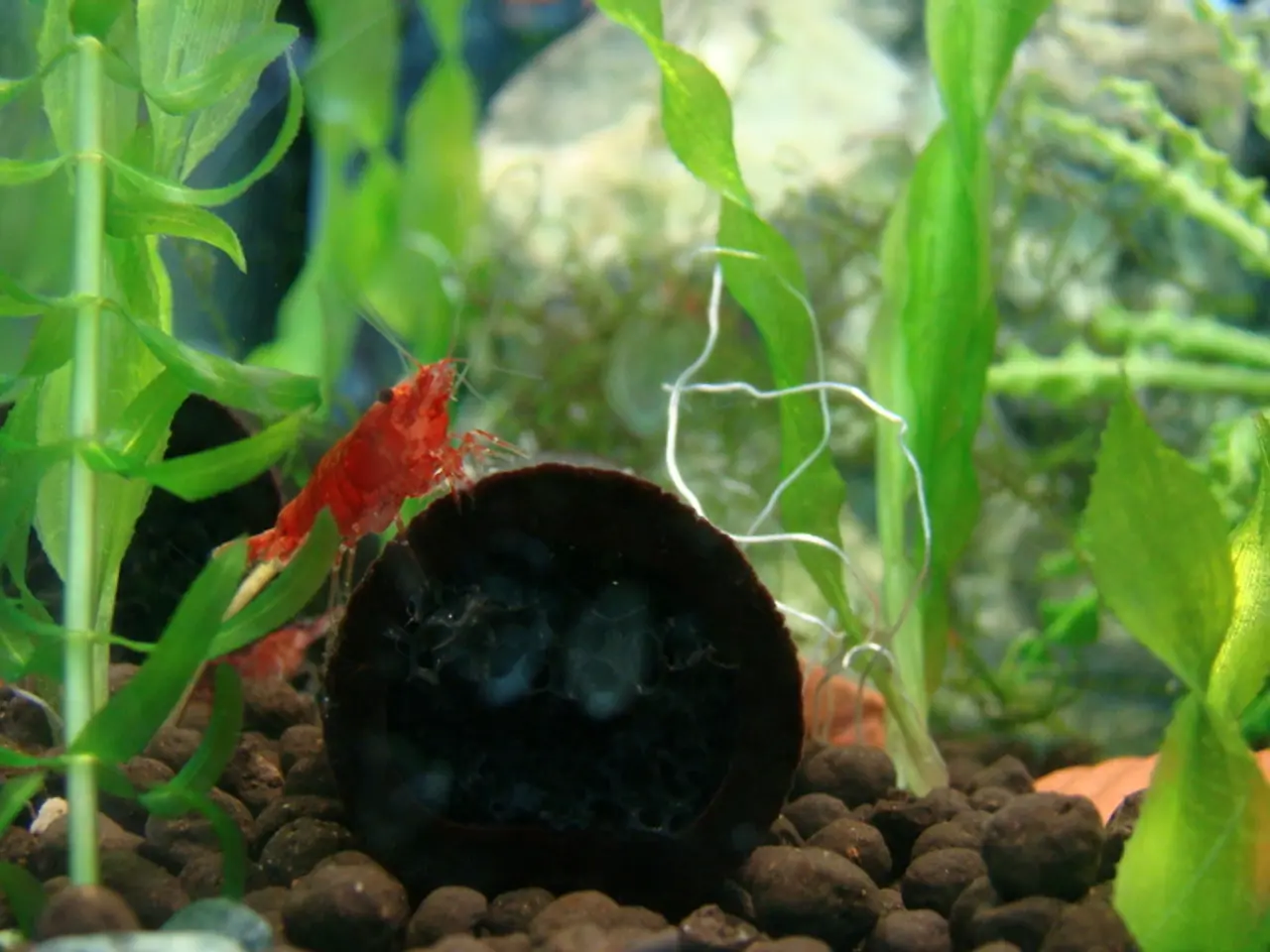Zero-emission bus from Winnipeg Transit ready for operation
Winnipeg, Manitoba, is leading the charge in Canada's transition to cleaner public transit with the introduction of its first 60-foot battery-electric buses (BEBs). These buses, which entered limited service in August 2025, mark a significant milestone in the city's commitment to reducing emissions and improving air quality [1][5].
The order for these electric buses, placed with local manufacturer New Flyer, includes four 40-foot and four 60-foot BEBs. Winnipeg will be the first Canadian city to have 60-foot BEBs in its fleet. The 60-foot buses boast 50 percent more capacity than their 40-foot counterparts [6].
The city's mayor and local representatives view this initiative as a key step towards a more sustainable and efficient transit system, balancing affordability and reliability for riders [1]. The buses will undergo rigorous testing during their first 30 days of operation, evaluating factors such as battery health, energy consumption, and operating costs [4].
The transition to zero-emission buses (ZEBs) is supported by a C$280.3 million (US$203.9 million) funding from the Investing in Canada Infrastructure Program [3]. Winnipeg Transit plans to use these funds to purchase 90 ZEBs and charging infrastructure [7].
The city's electrification efforts are not without challenges. Delays in delivery due to supply chain and production issues have postponed the initial June deadline for the first order of 16 ZEBs. However, a second order of 24 ZEBs is expected to arrive in early 2026 [2][3].
The electric buses recharge by connecting to a charger and can drive for 10 to 15 hours before needing a recharge. In contrast, the fuel-cell BEBs, which will be introduced at a later date, can drive for up to 24 hours [5].
The testing of these ZEBs aims to determine the most effective zero-emissions technology for Winnipeg's climate and inform future electrification steps. Winnipeg's shift to ZEBs is part of the city's broader goals to reduce emissions, improve air quality, and support sustainable community development [1].
Member of Parliament for Winnipeg South Center Ben Carr emphasised the importance of investing in cleaner, more efficient public transit, stating that it is essential to building sustainable communities [1]. With the first 60-foot electric buses in Canada rolling out in Winnipeg, the city is demonstrating leadership in sustainable urban transit.
References: 1. CBC News. (2021, September 22). Winnipeg's first zero-emission buses set to roll out in 2025. Retrieved from https://www.cbc.ca/news/canada/manitoba/winnipeg-zero-emission-buses-1.6141872 2. Winnipeg Free Press. (2021, June 14). Winnipeg's first zero-emission buses delayed due to supply chain issues. Retrieved from https://www.winnipegfreepress.com/local/winnipegs-first-zero-emission-buses-delayed-due-to-supply-chain-issues-570571942.html 3. Global News. (2021, August 11). Winnipeg receives funding for zero-emission buses. Retrieved from https://globalnews.ca/news/8374338/winnipeg-zero-emission-buses-funding/ 4. Winnipeg Transit. (n.d.). Zero-emission buses. Retrieved from https://winnipegtransit.com/innovation/zero-emission-buses 5. Government of Canada. (n.d.). Investing in Canada Infrastructure Program. Retrieved from https://www.infrastructure.gc.ca/plan/ici-ipg/index-eng.html 6. Winnipeg Transit. (n.d.). Zero-emission buses. Retrieved from https://winnipegtransit.com/innovation/zero-emission-buses 7. Winnipeg Transit. (n.d.). Zero-emission buses. Retrieved from https://winnipegtransit.com/innovation/zero-emission-buses
- The introduction of Winnipeg's first 60-foot battery-electric buses (BEBs) symbolizes a crucial step towards reducing emissions within the city, contributing to broader goals in environmental-science.
- The effectiveness of the zero-emissions technology for Winnipeg's climate is under evaluation through rigorous testing, which will help inform future infrastructure decisions in technology and finance.
- The city's major investment in the purchase of 90 zero-emission buses (ZEBs) and charging infrastructure is supported by the Government of Canada's funding from the Investing in Canada Infrastructure Program, promoting sustainable development in science and economics.
- The city's transition to zero-emission buses aligns with the sports sector's commitment to environmental responsibility, demonstrating Winnipeg's leadership in integrating sustainability into various facets of the community.




